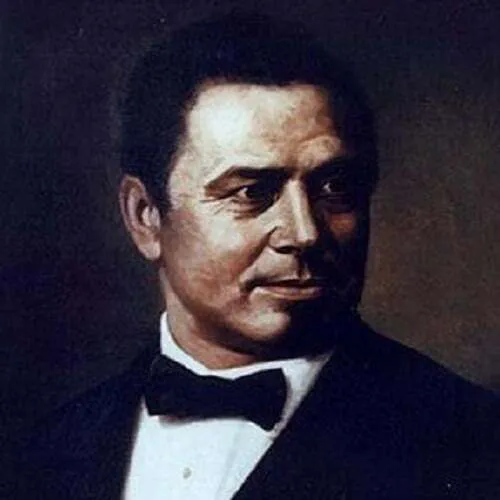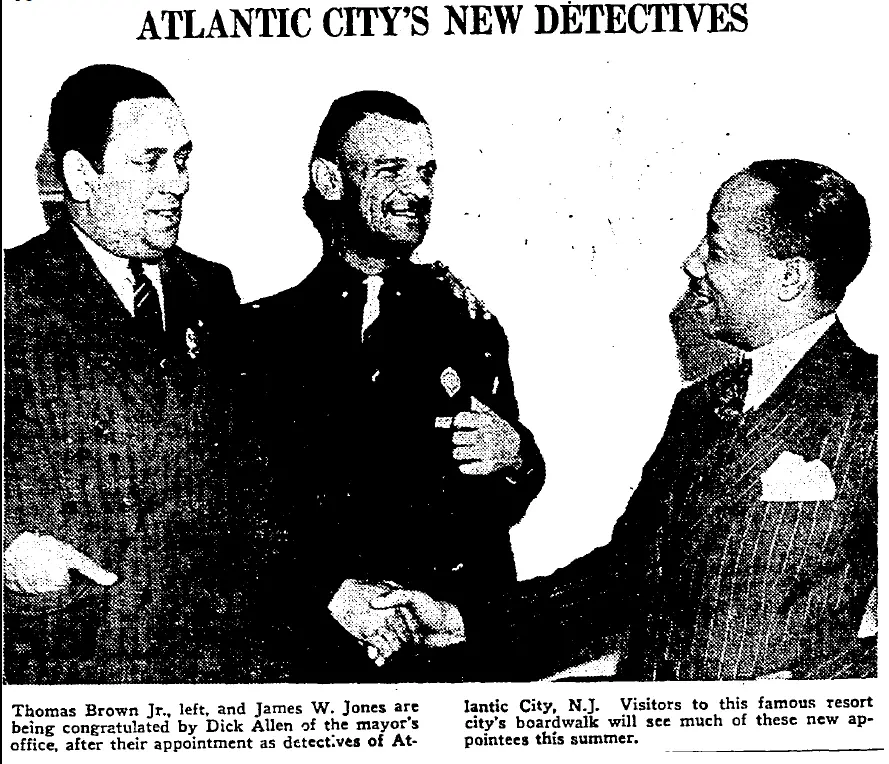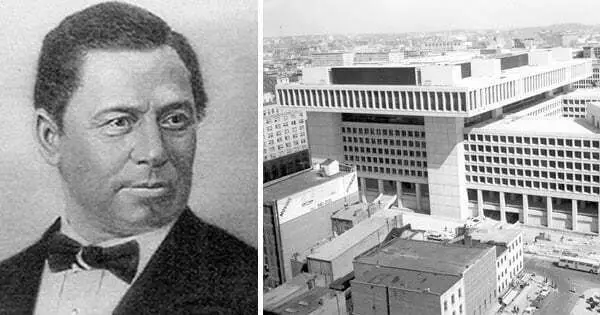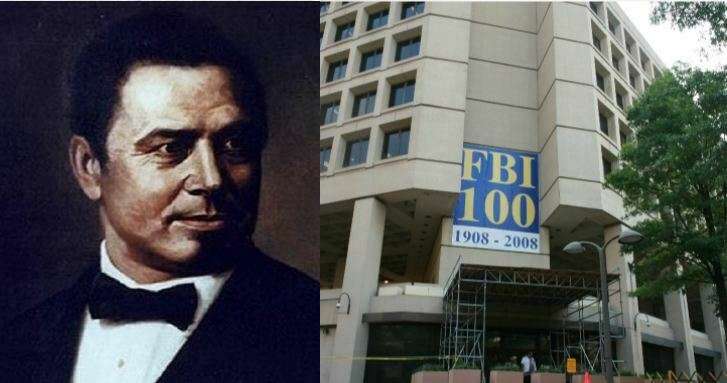Table of Contents
In 1919, America’s first black special agent, James Wormley Jones, “Jack” was employed to infiltrate US paramilitary groups with radical goals and affiliations to the Communist Party and the Ku Klux Klan.
Jones had the right qualifications for undercover operations, but his personal life was cloaked in secrecy. He was born in 1884 at a military base in Hampton, Virginia, the son of a slave, and served as a police officer and an Army captain during World War I before joining the FBI at the age of 35, according to the FBI.

Who was the first African American in the CIA? Who was the first black FBI? Here is the facts with his life story.
1. Extensive training in explosives
James Wormley Jones joined the Washington Metropolitan Police Department after graduating from college in 1905, quickly ascending through the ranks from footman to detective. Captain Jones enlisted in the US Army in 1917 and was sent to France. He witnessed battles in the Vosges Mountains, the Argonne Sector, and the Metz Front, and he taught soldiers how to handle bombs and grenades. Jones was calm under pressure, making him an excellent candidate for covert work.
2. “Agent 800” is a fictional character.
James Wormley Jones was hired by the Bureau of Investigation, the forerunner of the FBI, for its new General Intelligence Division, which was founded in the aftermath of terrorist bombings to track the operations of “subversive” groups. According to the US Office of the Director of National Intelligence, Jones’ background and weapons training would be invaluable. Jones went between the New York and Pittsburgh offices and began referring to himself as Agent 800 since he used the code number 800 for his reports.
3. Operation Undercover
James Wormley Jones’ direct boss was J. Edgar Hoover, the future FBI director. Jones was sent by Hoover in 1920 to get into a black nationalist group that was started by Marcus Garvey, a Jamaican merchant who thought that racial segregation was good and had run into the Ku Klux Klan before.
Hoover accused Garvey of mail fraud since he also ran the Black Line Shipping company. It was Jones’ job to prove it. The FBI agent became a close friend of Garvey’s. When Jones was asked to register letters, he was given the job of getting access to important evidence.
Garvey was later prosecuted for advertising the sale of stocks in a ship that the Black Star Line did not own, the Orion, and he successfully defended himself in court. In 1923, he was found guilty and deported back to Jamaica.

4. Cover Blown
During the Garvey operation in the middle of 1921, the Bureau became worried that the Harlem-based African Blood Brotherhood (ABB) was planning to set up armed paramilitary groups to protect the black community from white people.
Cyril Briggs, an African-American writer and Communist activist, founded the ABB in 1919 with the goal of providing a counter-voice to Marcus Garvey, his bitter competitor. (The men even filed slander lawsuits against each other.)
James Wormley Jones was sent to infiltrate the ABB and act as a double agent for both the ABB and the enemy. He went undercover to get information on both groups.
In his FBI files, Briggs was described as a “radical of the worst sort.” Despite this, Jones’ mastery of weaponry and explosives earned him Briggs’ trust. He was starting to make progress.
Jones was on the lookout for proof that Briggs was supported by Communists and was involved in other illicit activities. Unfortunately, Jones was identified as a former cop. His shroud had been blown.
5. Jones was not the only African American agent in the FBI.
James Wormley Jones shifted to auto theft and prostitution cases for the FBI when he could no longer serve as a clandestine agent, but by 1923, he was ready to move on. Jones had served with the Bureau for four years, but he was 39 years old at the time. It was time for him to cease leading a double life because he had a wife and children. Jones began his career as a detective with the Pittsburgh Police Department.
James Wormley Jones’ employment paved the way for more African-Americans to follow in his footsteps. In August 1921, President Theodore Roosevelt’s former bodyguard, James Amos, joined the Bureau. Earl F. Titus, an Indianapolis police officer, and former Chicago investigator Thomas Leon Jefferson, both joined in January 1922. After working for the Department of Justice, Arthur Lowell Brent became a special agent in 1923.
James Wormley Jones early life

James Wormley Jones was the country’s first African American FBI agent. Jones was born in Fort Monroe, Virginia, on September 22, 1884, to John Bradford Jones and Sally Jones. Jones had a brother named Paul W. Jones, who was his only sibling. His family later relocated to Cambridge, Massachusetts, where he grew up. Jones returned to Norfolk, Virginia in 1902 to attend Norfolk Mission College. He also completed his education at Virginia Union University in Richmond, Virginia, in 1905.
After graduation, Jones began working for the Washington Metropolitan Police Department in Washington, D.C. During his time with the police department, he progressed through the ranks from patrolman to horseback rider to motorcycle cop. He was promoted to detective in 1919.
James Wormley Jones enlisted in the United States Army when the country entered World War I in 1917. He attended the racially segregated Officers Training School in Fort Des Moines, Iowa, to become a police officer. After completing his training, Jones, 33, was commissioned a captain and assigned to Company F of the 368th Infantry Regiment, 92nd Division. Jones and Company F were sent to France in 1918, where they fought in the Vosges Mountains, Argonne Sector, and the Metz-Frantz Campaigns.
He also became a teacher at the 92nd Division School of Specialists, where he rose through the ranks to become a senior instructor. Jones returned to his job as a Washington, D.C. police officer after World War I ended in 1919.
A. Bruce Bieluski, the Director of the Bureau of Investigation at the time, named Jones as the first African American special agent on November 19, 1919. Shortly after he joined, the name of the agency was changed to the Federal Bureau of Investigation (FBI), and J. Edgar Hoover was chosen as the new director. Jones was tasked with working undercover and infiltrating “radical” black organizations.
James Wormley Jones’ first undercover job was infiltrating the African Blood Brotherhood, a covert armed African American black liberation group based in New York City and led by Cyril Briggs in 1921. Since most of the group’s members had been absorbed into the newly founded United States Communist Party by the end of 1921, it’s unclear what impact his infiltration had.
Hoover assigned Jones to infiltrate Marcus Garvey’s Universal Negro Improvement Association while working with the FBI in New York City on the African Blood Brotherhood (UNIA). Jones’ reports were assigned an FBI code number, and he was known as Agent 800 to Hoover and a small group of FBI officials. Jones gave the Bureau important information that led to Garvey’s arrest for mail fraud in January 1922, thanks to what he told them.
James Wormley Jones resigned from the FBI in 1923 after it was revealed that he was a former police officer. After that information became known, he was no longer effective as an organization infiltrator.
Much of Jones’ subsequent life is shrouded in mystery. Jones was married to Ethel Peter Jones, with whom he had two children: John T. Jones, a son, and Mildred Jones, a daughter. At the age of 74, James Wormley Jones died in Dormont, Pennsylvania on December 11, 1958.
On paper, Jones was little more than a footnote in history, but the FBI decided to honor him and the other black agents who helped shape the Bureau into what it is today on the 100th anniversary of their hiring in 1919.
Is there much that has changed in the last century? As of 2018, only about 4% of FBI special agents were black or African-American, and the other 18% were from a different race or ethnic group.
“We have a long way to go,” FBI spokeswoman Christina Pullen said, “but we are making progress.” “In the previous three years, the ethnic and racial makeup of the special agent community has been the most diversified, so we’re on the right track.”
Source: 1
Read More >>>


